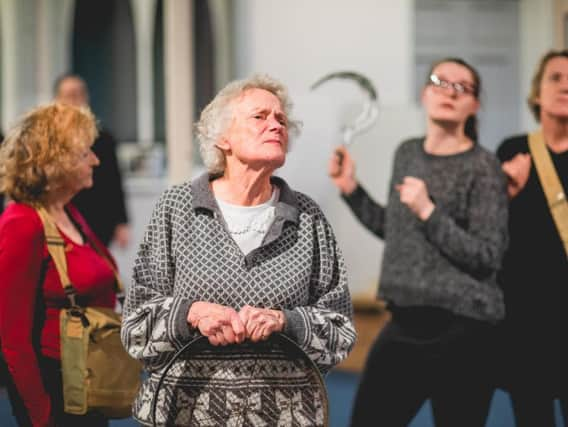Review: Warm Bear Pit show is as much living history as theatre


Lilies on the Land tells the story of some of the Second World War’s forgotten heroes. Though that should be heroines, for the Women’s Land Army was made up entirely of women, at first volunteers but later by conscription. It drew upon all classes wanting to do their bit for Britain. Though they were not involved directly in the fighting, they faced battles of their own: cold, hunger, exhaustion, neglect and sometimes abuse. They kept the home front fed and the army marching on its stomach. Without them the war could not have been won.
The play came about when the theatre company The Lions Part placed an advert in Saga magazine for reminiscences and were flooded with replies. Theirs was a story burning to be told. The result is a piece of verbatim theatre which, while it might lack a conventional plot, is packed full of many dramas.
Advertisement
Hide AdAdvertisement
Hide AdOften it was the little things that were the most moving. The jokes they told among themselves, for example, were so few and far between that they gained numbers, so that one had only to shout out “Seven” for it to raise a laugh. Greater dramas occurred when the women were confronted with situations way outside their experience. Calving a cow was a shocking experience at first, and tough in a remote and cold barn. But it was one of many experiences that galvanised a sense of purpose. Towards the end of the play one of the women drew out a single grain of wheat from her pocket and said admiringly: “I grew that.” A small part of a much larger picture.
Life wasn’t all grim labour. For some there were also dances, American soldiers and Italian POWs to think about. Many grew to love the land they worked upon.
The cast of seven play many composite characters in this ensemble piece that is as much living history as it is theatre. It is warmly delivered with what used to be called vim and vigour. It gives due recognition to an honourable corps. It’s a shame that the British government did not ensure they were all properly paid, nor recognise their contribution formally till 2008.